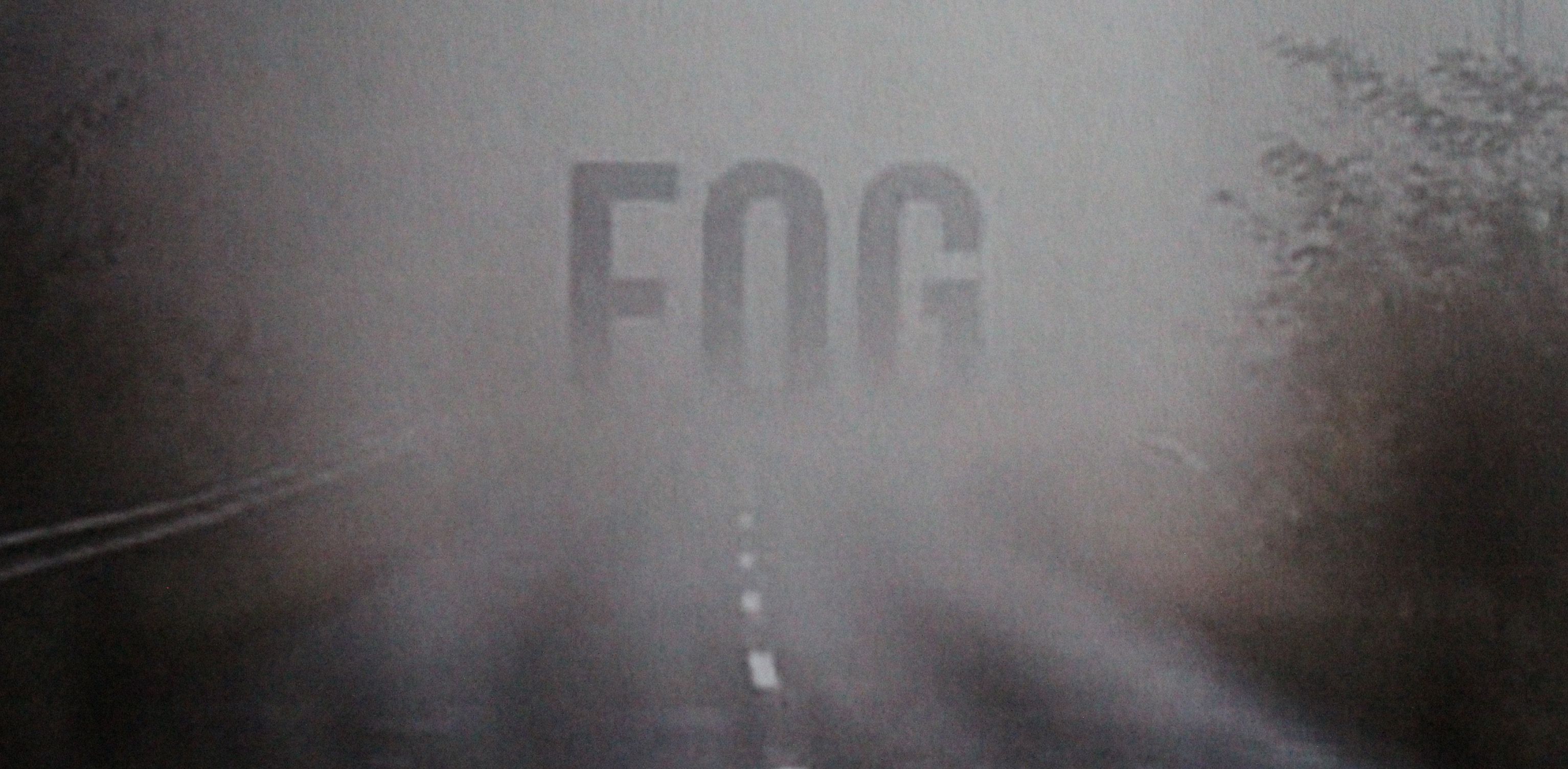Fog Warning


 The dense fog had surprised me about an hour earlier. I slowed down and turned on my lights. Braver (or more foolish) drivers, unconcerned by limited visibility, whizzed around me. When I pulled into a familiar rest stop, I became so disoriented after my stop that I crept back to the Interstate, breathing a sigh of relief when I was on the road again.
The dense fog had surprised me about an hour earlier. I slowed down and turned on my lights. Braver (or more foolish) drivers, unconcerned by limited visibility, whizzed around me. When I pulled into a familiar rest stop, I became so disoriented after my stop that I crept back to the Interstate, breathing a sigh of relief when I was on the road again.

